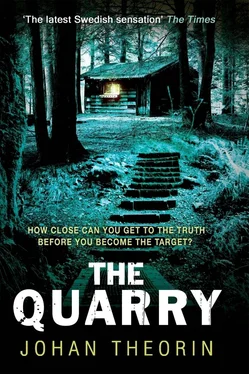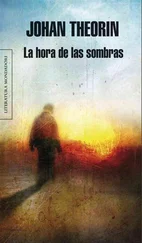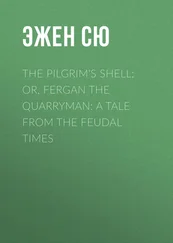As usual he didn’t say a word, just munched away at the biscuits and drank his milk. And then he headed off towards the north again, without so much as a thank-you.
He’s so timid and he jumps at the slightest sound, so I don’t think he’s supposed to be here. He wants to come and go without anyone seeing him. That’s why I don’t mention him, not to anyone.
Gerlof stopped reading. He looked over towards the village road in the north and thought about the fact that Ella’s visitor had always come from that direction.
What lay to the north? In the fifties there had been a few farms and boathouses up there; apart from that, there was nothing but grass and bushes. And the quarry, of course. That was the closest, on the other side of the road.
He was going to start reading again, but the bell on the gate heralded the arrival of a visitor; not the care service this time, but Per Mörner. He waved, and Gerlof waved back. They hadn’t seen each other since the previous week, at the party.
‘I’m back,’ said Per, walking across the lawn.
‘I didn’t even know you’d been away,’ said Gerlof. ‘Did you take your father back to the mainland?’
‘That was the idea,’ Per said quietly, ‘but one or two things got in the way... He’s still here, I’m looking after him.’
He lowered his eyes as he spoke.
‘Well, that’s good,’ said Gerlof. ‘You’ll be able to spend some time together.’
‘Yes,’ said Per, not looking particularly pleased at the prospect.
There was a short silence, then he suddenly asked, ‘By the way, do you know anything about the blood over in the quarry?’
‘Traces of blood?’ said Gerlof. ‘I’ve never seen any.’
‘Not traces of blood,’ said Per. ‘It’s more like a red layer that you can see in the rock... Ernst used to talk about the place of blood.’
‘Oh, that?’ Gerlof laughed. ‘Yes, that’s what the quarry workers used to call it. But it’s not blood, it’s iron oxide. It was formed when Öland lay beneath the water, and the quarry was part of the sea bed. The sun shone down through the waters of the Baltic and the sea bed oxidized. Then the island rose from the waves and the iron oxide solidified and formed a layer of rock... It was before my time, of course, but that’s what I’ve read.’
‘But did the quarry workers believe it was blood?’
‘No, no, but they had lots of names for the different strata within the rock.’ Gerlof raised a hand and counted on his fingers: ‘There was the hard layer on the top; that was full of cracks, and they just broke it off and shovelled it away. Then there was the sticky layer that was solid and difficult to quarry. After that they reached the good layer, where they found the best, finest limestone, and that was what they dug out and sold. And underneath that, in certain parts, was the place of blood.’
‘Was the stone good down there?’
‘No, quite the opposite,’ said Gerlof. ‘When they reached the place of blood they’d gone too far.’
Per nodded and said, ‘So now I know. There’s always a simple explanation.’
Gerlof glanced at Ella’s diary, lying on the table. ‘Well, usually.’
Per started working again on Tuesday.
‘Good morning, my name is Per Mörner and I’m calling from Intereko, a company involved in market research. I wonder if you have time to answer a few questions?’
Even while he was reeling off the questions he was thinking about other things. He gave some thought to Vendela Larsson and her talk of trolls and elves. She was a bit strange, but he couldn’t get her out of his mind.
The telephone on the kitchen table rang at about ten o’clock, when he had just finished his twelfth conversation about soap. The memory of the strange anonymous call after Easter made him hesitate, his hand hovering above the receiver, but in the end he picked it up.
A firm male voice spoke. ‘Per Mörner?’
‘Speaking.’
‘This is Lars Marklund from the Växjö police. We’ve spoken before...’
‘I remember.’
‘Good; it’s about the house fire in Ryd, of course. We’d really like to expand on the interview from that first evening.’
‘You want to talk to me?’
‘And your father.’ It sounded as if Marklund was shuffling through some papers. ‘Gerhard Mörner. When would be a convenient time for you?’
‘I’m afraid there’s not much to be gained from speaking to my father,’ said Per.
‘Is he ill?’
‘He had a stroke last year. It’s affected his speech; he can only remember odd words.’
‘We’d still like to ask him a few questions. Is he at his home address?’
‘No, he’s here on Öland.’
‘OK... we’ll be in touch.’
‘But what’s it about?’ asked Per. ‘What do you want to know?’
‘We just have a few more questions... The fire investigators have finished now.’ He paused and added, ‘And the post-mortems have been carried out.’
‘So what have you found out?’ said Per.
But Marklund had already hung up.
Jerry was still asleep, or at least he was still in bed. Per managed to get him up and persuaded him to get dressed. It seemed to take longer and longer every day; Jerry had no strength whatsoever in his left arm, and Per had to help him into his shirt.
‘Breakfast time,’ he said.
‘Tired,’ said Jerry.
Per left him at the kitchen table with coffee and sandwiches and went out into the sunshine and the clear, cold air to take another look at Ernst’s workshop.
He opened the doors wide so that the light fell on the sculptures inside. It was a strange group — like a big troll family, or whatever it was supposed to be. And all around them, lining the walls, were Ernst’s tools: chisels, hammers, axes and drills. A whole arsenal of tools.
If Jerry had had other interests earlier in life, sleep was his only interest now. He stayed in bed in the mornings, and after his late breakfast he wanted to go straight back there. But Per was having none of it; he made his father put on his coat and shoes, and took him over to the edge of the quarry.
‘Look,’ he said, pointing. ‘Jesper and I are building a flight of steps... we can use them now, if we’re careful.’
He held Jerry’s arm firmly as they moved down the narrow ramp; there was just enough room for them to walk side by side, although some of the stones felt alarmingly wobbly beneath their feet. But the blocks remained in place.
‘Not bad, eh?’ said Per as they reached the bottom.
Jerry’s only response was a cough. He looked around the wide gravelled space. ‘Empty,’ he said.
Per kept an eye on him, but started working on the steps again. The wheelbarrow was still there, and he filled it with gravel and pushed it over to the rock face so that he could unload it and start building up the ramp with his spade to make it more stable.
When he had emptied out five loads of gravel, he turned and looked at his father. ‘What are you doing, Jerry?’
Jerry had gone to stand over by the nearest pile of gravel, with his back to Per. He was just standing there, his head bowed, and at first Per didn’t realize what he was doing — until he noticed that Jerry was fiddling with his flies.
‘No, Jerry!’ he shouted.
His father turned his head. ‘What?’
‘You can’t do that down here... You need to go back up to the house!’
But it was too late. He could only stand and watch until Jerry had finished and done up his zip.
The trolls don’t like it if you spill liquid , thought Per. He went over and took his father by the arm. ‘There’s a toilet in the house, Jerry. Use it next time, please.’
Jerry looked at him uncomprehendingly, then suddenly he stiffened, looking past Per and out towards the sea. He blinked. ‘Bremer’s car,’ he said.
Читать дальше












